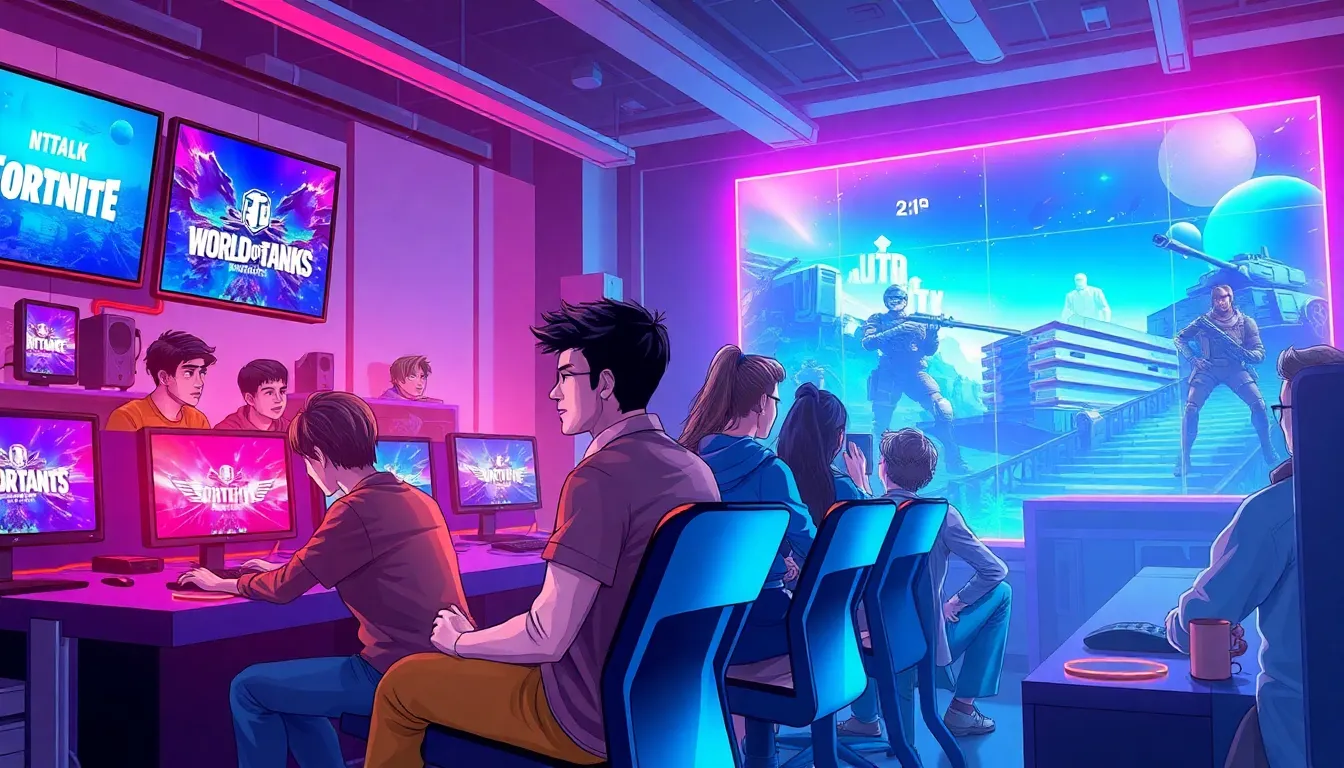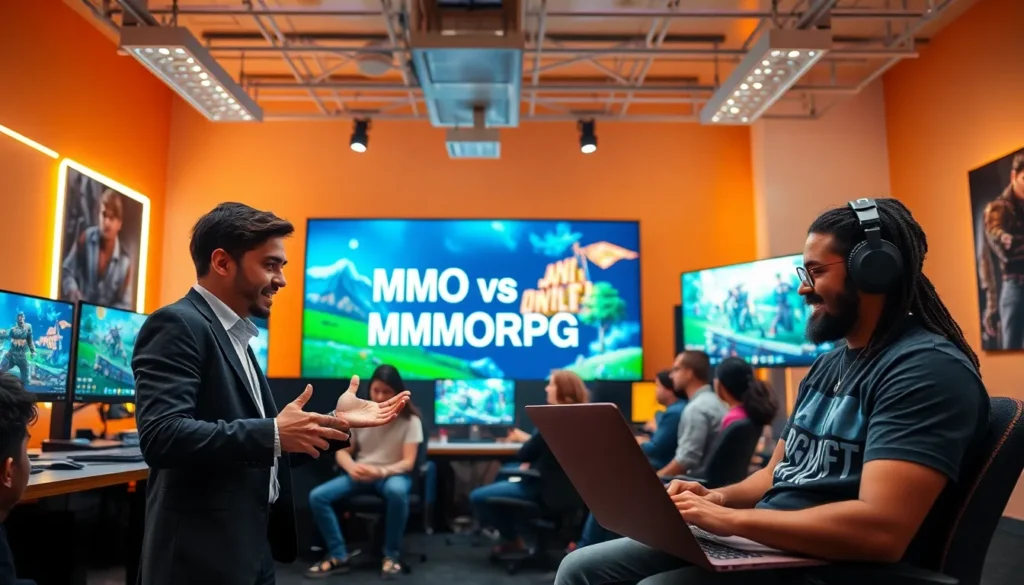Table of Contents
ToggleIn the sprawling universe of gaming, two acronyms often lead to confusion: MMO and MMORPG. You might think they’re just a jumble of letters meant to confuse the average gamer. But fear not. Today, we’re diving deep into these terms to clarify their distinct features and what makes each one uniquely enjoyable. Picture a world where you can slay dragons or trade loot with friends across vast virtual landscapes while forgetfully munching on snacks in the real world. Sounds pretty good, right? Let’s make sense of it all.
What Is MMO?

The term MMO stands for Massively Multiplayer Online. These games engage a large number of players within a shared digital environment. But what adds to the excitement? They can feature different gameplay styles ranging from virtual worlds to competitive shooting games.
Characteristics of MMO Games
MMOs are defined by a few key traits:
- Large Player Base: Thousands of players can co-exist in the same game world.
- Persistent Worlds: The game environment continues to evolve, even when you’re not logged in.
- Varied Gameplay Styles: MMOs can encompass a wide range of genres, from first-person shooters to racing games.
Think about games like “World of Tanks” or “Fortnite”, both allow numerous players to engage in fun, competitive experiences without a heavy emphasis on role-playing.
Popular Examples of MMO Games
- World of Tanks: A tactical battle game where players hop into armored vehicles and fight in team-based matches.
- Fortnite: An ever-evolving island filled with players looking to outlast each other.
- Overwatch: A team-based shooter promoting dynamic gameplay with a colorful cast of characters.
Each of these MMOs offers thrilling experiences that don’t necessarily require the depth of character progression often found in RPGs.
What Is MMORPG?
Now let’s clarify the big brother of MMOs: MMORPG, which stands for Massively Multiplayer Online Role-Playing Game. Unlike its lighter counterpart, MMORPGs focus more heavily on character development and storytelling.
Characteristics of MMORPG Games
- Immersive Role-Playing: Players create and develop avatars that can engage in quests, level up, and unlock skills.
- Expansive Lore: A rich narrative background provides depth to the game world, often rich with lore.
- Community Interaction: Players typically collaborate or compete with one another while experiencing shared narratives and events.
Games such as “World of Warcraft” and “Final Fantasy XIV” fall into this category, allowing players to embark on epic quests as they develop their characters.
Popular Examples of MMORPG Games
- World of Warcraft: Set in the expansive world of Azeroth, it boasts countless characters, classes, and riveting quests that span years of story development.
- Final Fantasy XIV: With its engaging storyline and vibrant community, it introduces players to intricate gameplay and collaborative adventures.
- Guild Wars 2: A game that highlights player choice, providing dynamic events that evolve with player decisions in a richly textured game world.
Key Differences Between MMO and MMORPG
While both MMOs and MMORPGs thrive on large communities and shared digital landscapes, several differences set them apart. Let’s explore how these genres stack up against each other.
Gameplay Mechanics
MMOs sport diverse gameplay mechanics that often don’t emphasize storytelling. They may feature competitive elements with short-term engagement, making players hop into quick matches or battles.
Conversely, MMORPGs require time investment, focusing on quests and character leveling, which encourages players to come back for extended play sessions as they develop their skills.
Community Engagement
In an MMO, interaction may be more spontaneous, driven by competitive play or temporary alliances. Players join up to accomplish a specific goal and may never encounter each other again.
On the other hand, MMORPGs cultivate lasting relationships through guilds, parties, and dedicated groups who undertake long journeys together.
Narrative and Quests
The narrative in MMOs is often minimal, providing players with direct objectives without extensive backstory. More straightforward and action-oriented, they don’t linger on character development.
In MMORPGs, players dive headfirst into intricate plots with deep lore, engaging quests, and side stories that allow for a rich storytelling experience. Game chapters often unfold in tandem with the community’s progression.
Summarizing, the differences boil down to how they prioritize engagement. MMOs are great for quick gaming bursts, while MMORPGs immerse players in vast, storied universes.







